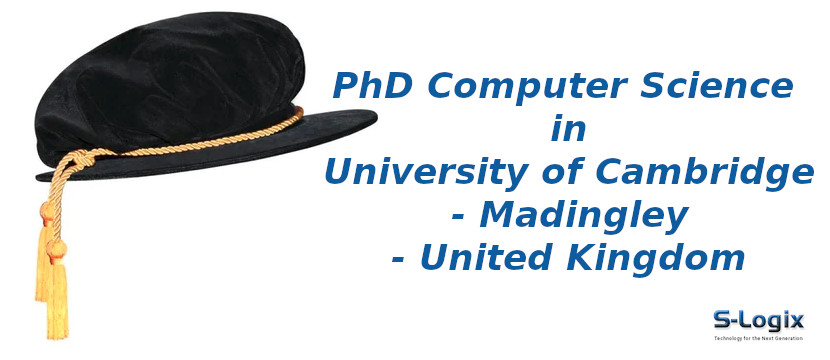The University of Cambridge is an intellectual research institution based in Cambridge, United Kingdom, established in 1209 and regarded as the world-s third-oldest prevailing university.
According to the QS World University Rankings, the University of Cambridge is among the leading universities worldwide. The University of Cambridge comprises various institutions with 31 semi-autonomous constituent colleges and 150 academic departments.
The University of Cambridge spends £592.4 million on research awards and contracts. The University of Cambridge covers a wide array of departments in all major subject groups and specialized research areas, which is beneficial for conducting world-class original research.
University of Cambridge contributes high international levels of excellence via the pursuit of education, learning, and research. As a collegiate university, the University of Cambridge provides an interdisciplinary nature as a stimulus to teaching and education.
University of Cambridge also has possibilities for innovative partnerships with businesses, charitable foundations, and healthcare for financial and research support for its students.
Address: Madingley, Cambridge CB23 8AQ, United Kingdom
Phone: +44 1223 746222
Email: reception@educ.cam.ac.uk
Website: https://www.cam.ac.uk/
• Computer Science - BSc
• Advanced Computer Science - MPhil
• Computer Science - PhD
• Antarctic Studies - PhD
• Application of Artificial Intelligence to the study of Environmental Risks - MRes + PhD
• Automated Chemical Synthesis Enabled by Digital Molecular Technologies (EPSRC CDT) - PhD
University of Cambridge research investigations are involved in a wide range of disciplines. In essence; it has revolutionary fundamental computer science research with strong cross-cutting associations internally and externally. Current computer science research areas include;
• Algorithms and Complexity
• Computer Architecture
• Graphics; Vision; and Imaging Science
• Human-Centred Computing
• Machine Learning and Artificial Intelligence
• Mobile Systems; Robotics; and Automation
• Natural Language Processing
• Programming Languages; Semantics; and Verification
Security
• Systems and Networking
Algorithms and Complexity - Algorithms and Complexity research at the University of Cambridge works on
• Computational Complexity
• Logic & Algorithms
• Complexity On Graph-Structured Data
• Graph Theory
• Graph Isomorphism
Computer Architecture - Computer Architecture research at the University of Cambridge focuses on the following research topics as
• Microarchitecture
• VLSI Techniques & Design
• Electronic CAD
• Secure Hardware
• Multi-Core Processors & Compilers
• On-Chip Interconnection Networks
• Novel Approaches To System-Timing
• FPGA Architectures
• Software Programmable Processing Substrates
• Hardware Security
Graphics, Vision, and Imaging Science - Researchers at the University of Cambridge in the area of Graphics, Vision, and Imaging are investigating on
• Computer Graphics
• Image Processing
• Human-Computer Interaction
• Affective Computing
• Motion Capture Sensors & Cameras
• Prototype Displays
• Augmented & Virtual Reality Headsets
• Humanoid Robots
Human-centered Computing - Research under the Human-Centered Computing research area at the University of Cambridge focuses on
• Affective Computing
• Computer Music
• Human-Robot Interaction
• Diagrammatic Reasoning
• Computational Photography
• End-User Programming
• Ubiquitous Computing
Machine Learning and Artificial Intelligence - Machine Learning and Artificial Intelligence research at the University of Cambridge concentrates on
• Deep Learning
• Classical Statistical Learning
• Computational Biology
• Knowledge Representation
• Bayesian Inference
• Causal Modelling
• Logical Reasoning
• Probabilistic Reasoning
• Visual Reasoning
• Stochastic Processes
• Human-Like Computing
• Natural Language Processing
• Personalized Medicine & Education
• Automated Theorem Proving
• Policy Work & Data
• Systems Applications
• Sensor Networks
Security- This area researcher at the University of Cambridge works on the following research interests
• Security Controls & Protocols
• Cryptology
• Criminology
• Formal Methods
• Hardware Design
• Biometrics & Usability
• Information Security
Natural Language Processing - University of Cambridge-s Natural Language Processing researchers focuses on
• Automated Fact Checking
• Dialogue Systems
• Document Summarisation
• Scientific Text Processing
• Nlp In Healthcare & Cybercrime
Programming Languages, Semantics and Verification - University of Cambridge
• Programming Language Design
• Compilers & Program Analysis
• The Development Of Interactive Theorem Provers & Automatic Proof Procedures
• The Formal Verification Of Computational Systems
• Structural Operational Semantics
• Type Systems
• Domain Theory
• Category Theory
• Finite Model Theory & Linear Logic
• Higher-Order Typed Programming Languages
• Object-Based Languages
• Low-Level Machine Languages
• Foundational Languages For Concurrent
• Distributed & Mobile Computation
• Hardware Description Languages
• Security & Networking Problems
• Database Theory
• Computational Complexity
Systems and Networking - Systems and Networking research at the University of Cambridge concentrates on
• Networks
• Operating Systems
• Multimedia
• Mobile & Sensor Systems
• Distributed Systems
• Computing & Communications Hardware & Software
• Mobile Systems
Research labs and groups exploited for computer science research at the University of Cambridge are listed below;
• Artificial Intelligence Group
• Computer Architecture Group
• Systems Research Group
• Computer Laboratory
• Natural Language and Information Processing Research Group
• Programming, Logic, and Semantics Group
• Security Group
• Energy and Environment Group
• Digital Technology Group
• Cambridge Centre for Data-Driven Discovery
• Cambridge Centre for Social Innovation (CCSI)
• Cambridge Digital Innovation (CDI)
• Centre for Process Excellence & Innovation (CPEI)
The University of Cambridge provides a range of financial assistance to its graduate students through various academic scholarship schemes such as
To apply for the Ph.D. degree program in computer science at the University of Cambridge; applicants must submit the following application requirements online
• Scanned copies of all official transcripts
• Three letters of recommendations
• Personal Statement
• Research abstract
• TOEFL or IELTS score report is mandatory for international applicants with a satisfactory score
